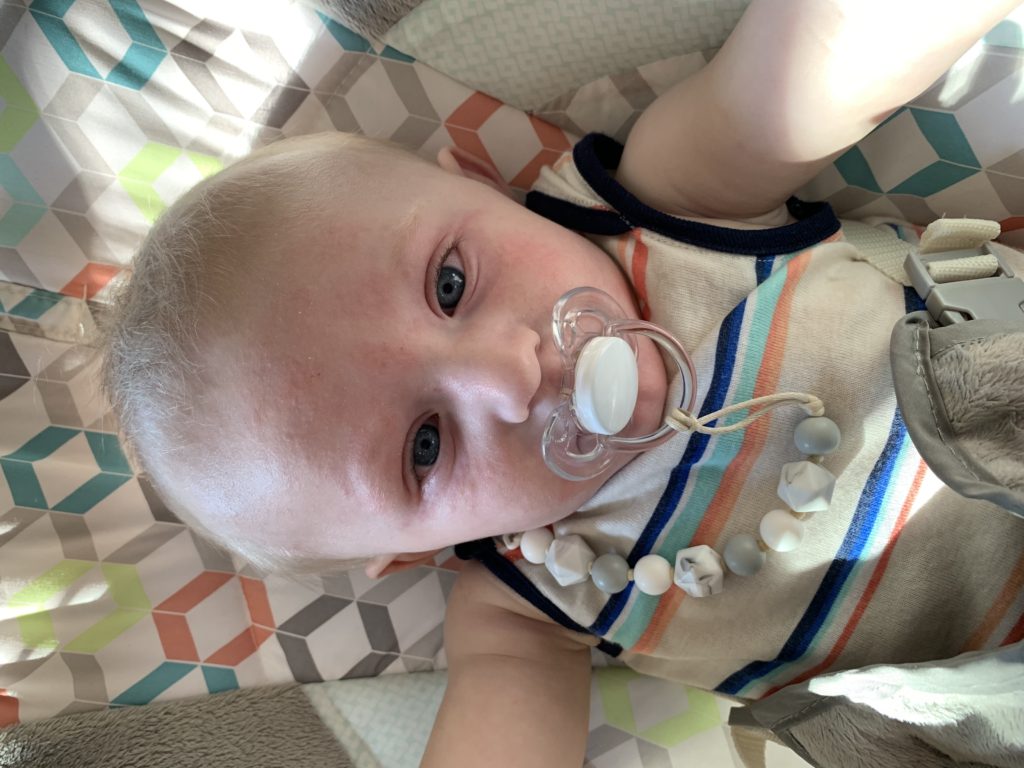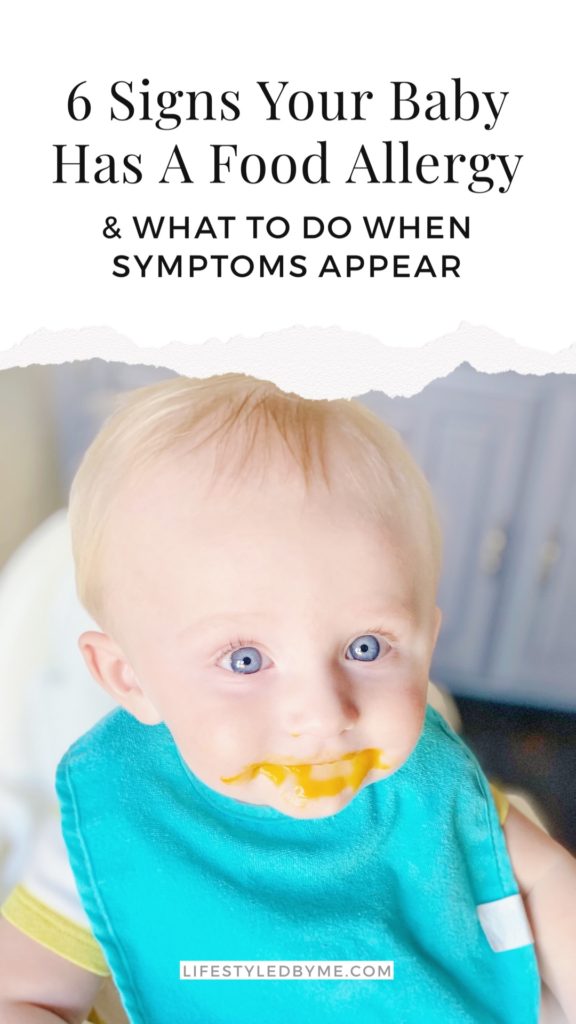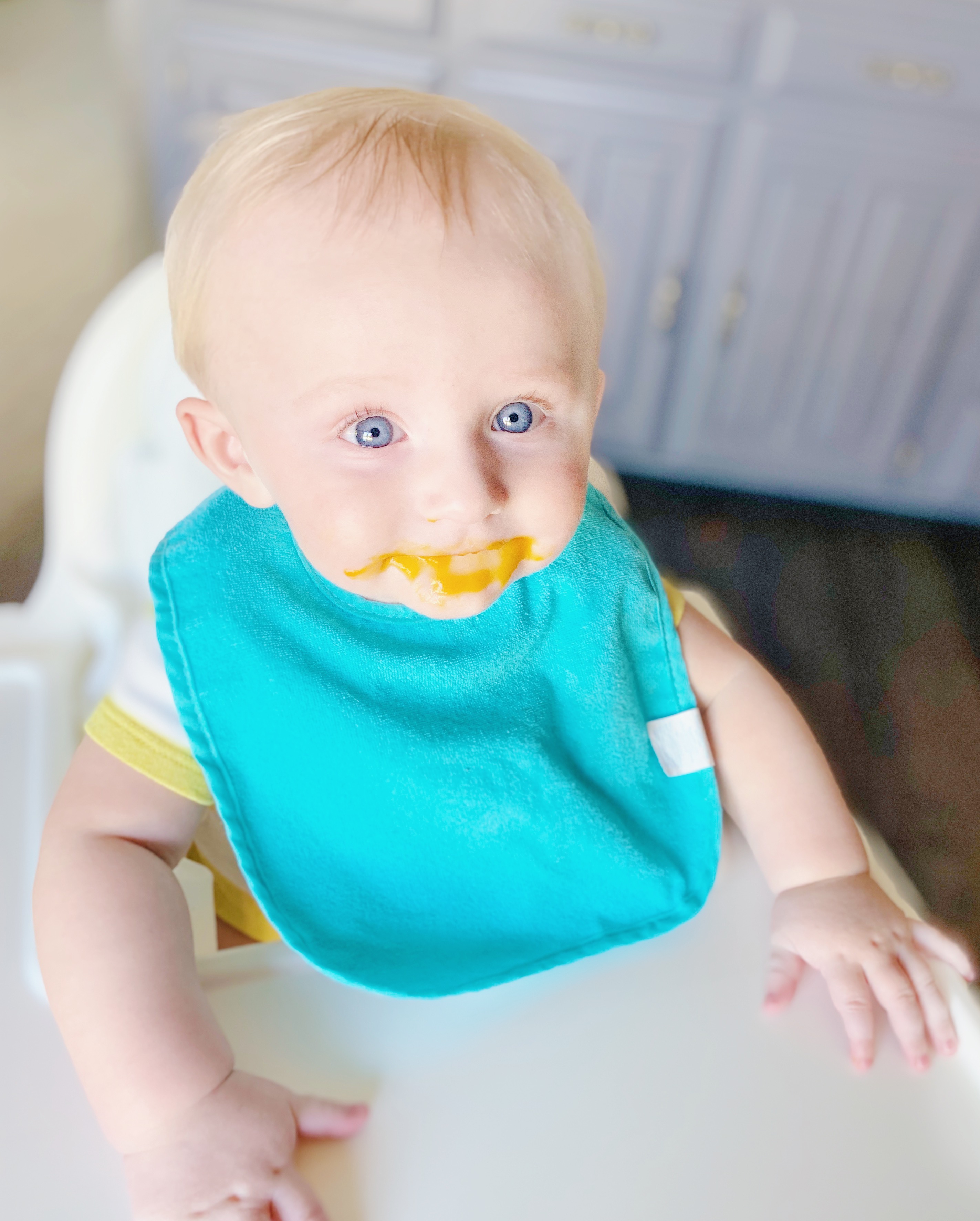We found out the hard way that our son is allergic to dairy and eggs. He had reactions to both foods, but the symptoms were different. Since posting about Owen’s food allergies on Instagram, I get personal messages often from concerned moms that think their baby might have a food allergy as well. So I thought it would be beneficial to do a blog post over it!
If you’re worried your child might have an allergy, it’s something you want to address as soon as possible. However, suspected food allergies should always be evaluated, diagnosed and treated by your child’s pediatrician or a board-certified allergist. Fortunately since your baby can’t speak up and verbally tell you when something’s wrong, I’m going to share what some signs of food allergies to look for.
Most Common Allergen Foods
There are eight common allergy culprits, according to Kids Health: milk, soy, eggs, wheat, tree nuts, peanuts, fish, and shellfish. It seems counterintuitive, but it’s generally advisable to introduce these foods sooner rather than later. According to the American Academy of Allergy, Asthma, and Immunology (AAAAI), delaying the introduction of possible allergens might actually make your child more likely to develop an allergy. Although because we found out that Owen was allergic to dairy while he was still only breastfeeding, his pediatrician said absolutely no shellfish once we started introducing solids. We’ve stayed clear of shellfish since.
Reactions to foods might not happen immediately. Symptoms to foods might happen within minutes or even hours after your child has tried a food. So it’s important to seek medical attention or know how to respond as soon as you notice symptoms. I know first hand that dealing with food allergies can be scary. Here are some signs to watch out for – and remember, you got this.
Skin Changes

Skin changes are probably the more obvious reactions to a food allergy. If you’re introducing a new food to your baby, you’ll want to watch out for hives, eczema flare ups, and blotchy red patches. As you can see from the picture of Owen, he had a skin reaction within minutes when I introduced him to egg whites.
Stomach Issues

If your baby eats food that they’re allergic to, it can also affect their stomach. If your child starts showing signs of nausea, projectile vomiting, blood in their stools, or diarrhea then they are most likely having a reaction to the food. Vomiting can also be a sign of acid reflux or GERD so it might be hard to diagnose. However, one of the early signs of Owen being allergic to my breast milk was projectile vomiting and blood specs in his stool.
Unusual Behaviors
If your child starts doing things that are abnormal, it could also be a sign they have a food allergy. For example, when I knew Owen was allergic to egg whites, he started to constantly rub his eyes. Another sign could be putting fingers in his or her mouth as well as pulling or trying to itch their tongue.
Fussiness
This might be harder to identify if your child has colic. None the less, if you notice your baby is fussier than usual after mealtime, it could be a sign of an allergic reaction. Especially if the fussiness is accompanied by another reaction listed.
Swelling Of Eyes Or Mouth

Another sign is swelling of eyes or mouth. A reaction can cause your child’s lips, tongue, and/or throat to swell. If the reaction is strong enough, this can cause his or her airway to close up. Which leads me to the last symptom…
Trouble Breathing
The scariest and most severe reaction is trouble breathing. It goes without saying that this symptom is life threatening. If your child starts to turn blue or loses consciousness, seek medical attention immediately. Thankfully according to Asthma and Allergy Foundation of America (AAFA) only 1 in 50 Americans experience this type of reaction, so it isn’t very common.
What To Do Once Symptoms Show
With Owen being allergic to dairy and eggs, I know from experience that food allergies can be scary to deal with. However the good news is that most children end up growing out of their food allergy. Children are more likely to outgrow their sensitivity to milk, egg or soy by age 5. If your child has an allergy to peanuts, shellfish, or tree nuts, they are less likely to outgrow it.
I recommend talking to your child’s pediatrician before starting solids or introducing new foods. Owen’s pediatrician recommended having Children’s Tylenol and Benadryl on hand incase he started to show any of the symptoms I listed above. Considering how quickly he had an allergic reaction to egg whites, I’m so thankful I had Benadryl on hand. So be sure to talk to your child’s doctor about precautions you can take incase of a reaction. Should you need to give your child Children’s Tylenol or Benadryl, here is a resource you can use to find out the correct dosage.
Hopefully this article was helpful in identifying a symptom your child might be having. If you have any questions about my experience with Owen’s food allergies, feel free to leave a comment below!

